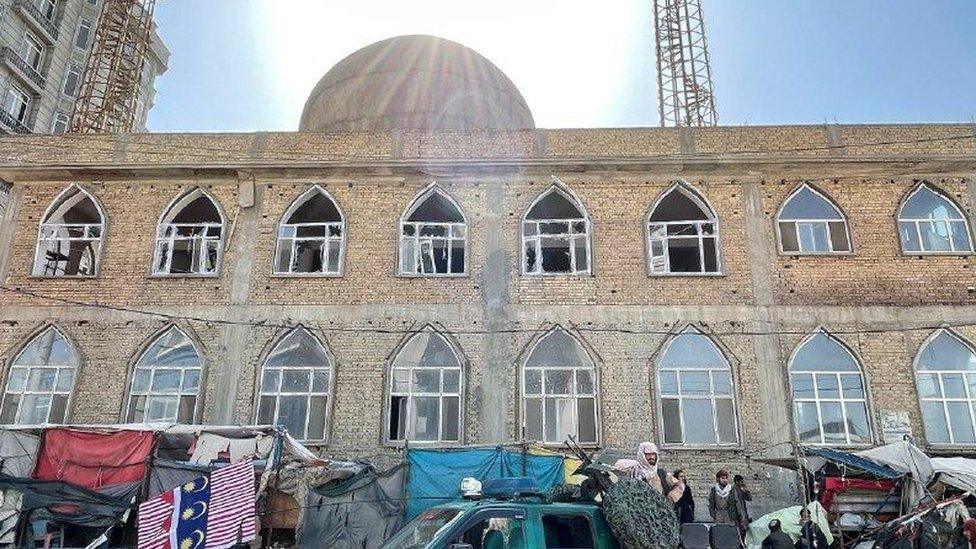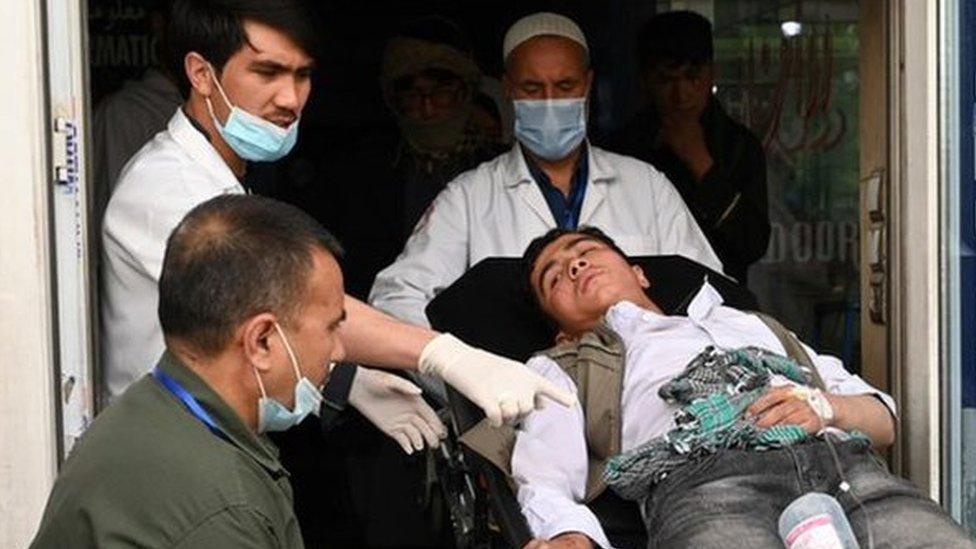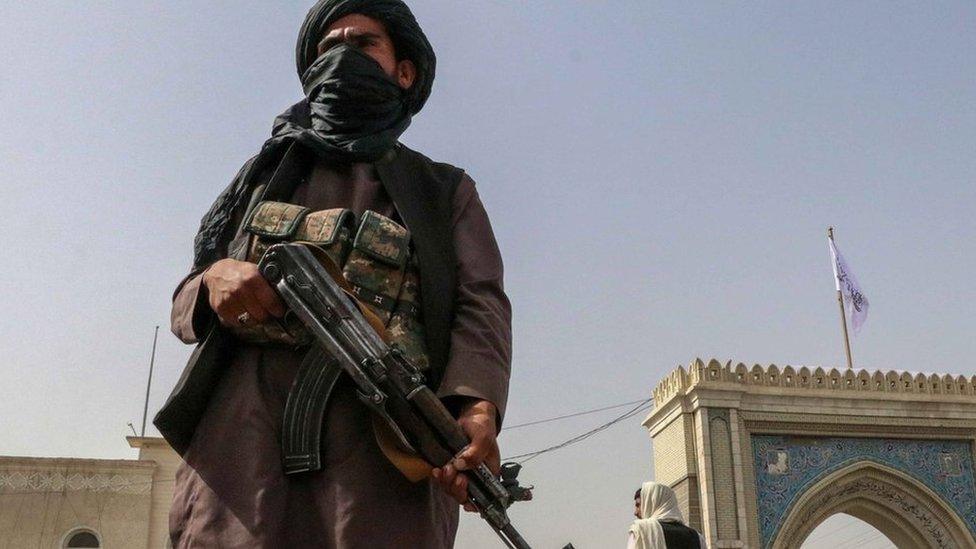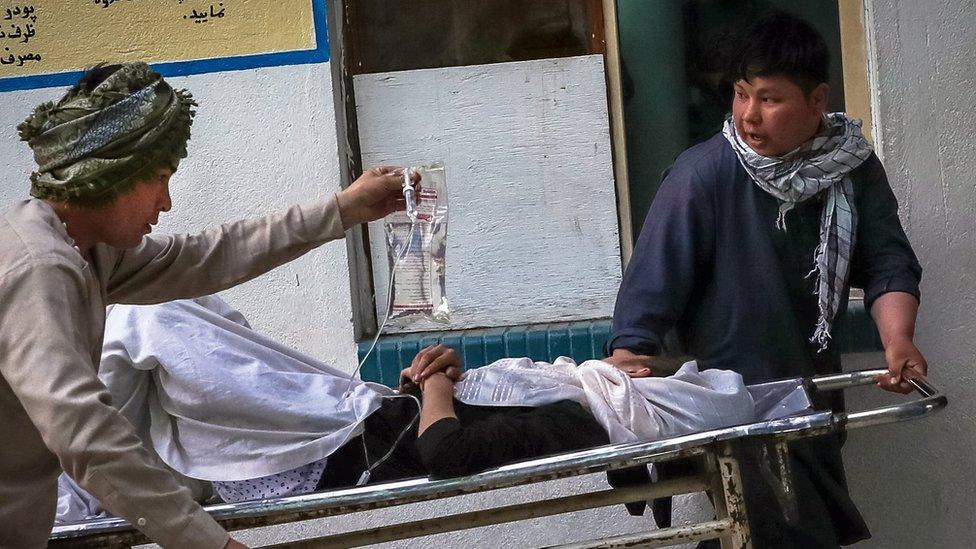Afghanistan: 'Blood and fear everywhere' after deadly IS blast
- Published

The Seh Dokan mosque stands in a busy area of Mazar-i-Sharif, a city in northern Afghanistan
Dozens of people have been killed or injured in four explosions across Afghanistan on Thursday, local officials and journalists have said.
The first explosion tore through a Shia Muslim mosque in Mazar-i-Sharif.
At least 31 people were killed, and 87 were wounded, the BBC has been told.
The Islamic State group (IS) admitted carrying out the attack. The Taliban say they have defeated the IS but the group remains a serious security challenge to Afghanistan's new rulers.
The attack on the Mazar-i-Sharif mosque was carried out using a remotely detonated booby-trapped bag when the building was packed with worshippers, the Sunni Muslim IS jihadists said.
The group called the attack part of an ongoing global campaign to "avenge" the deaths of its former leader and spokesman.
Ahmad Zia Zindani, spokesman for the provincial public health department, told AFP news agency that "blood and fear are everywhere," and that "people were screaming" while seeking news of their relatives at the local hospital.
IS has also claimed another of Thursday's attacks - a blast which saw a vehicle blown up near a police station in Kunduz, leaving four dead and 18 injured.
The BBC has also received reports of a Taliban vehicle being hit by a roadside mine in eastern Nangarhar province, killing four Taliban members and wounding a fifth.

A fourth blast was caused by a mine planted in the Niaz Beyk area of Kabul, Afghanistan's capital, and wounded two children.
Thursday's bloodshed comes days after two bomb blasts at Abdul Rahim Shahid high school in a mostly Shia area of the Afghan capital, Kabul. At least six people were killed and more than 20 wounded, officials said.
'Everyone started to run'
Local reports and witnesses say the explosion in Mazar-i-Sharif happened at Seh Dokan, one of the biggest mosques used locally by the Hazara minority group.
The number of casualties remains fluid at this stage and liable to change.
Afghanistan's Hazara community is often targeted by Sunni militant groups, including IS.
The blast is said to have happened while worshippers were preparing to perform prayers. Images shared on social media, which the BBC has not verified, showed the site littered with broken glass and victims being carried.
One Mazar-i-Sharif woman told news agency Reuters she had been shopping at a nearby market when she heard a large explosion near the mosque.
"The glass of the shops was broken and it was very crowded and everyone started to run," she said, asking for her name not to be used.
Richard Bennett, the United Nation's Special Rapporteur for Afghanistan on human rights, condemned the attacks.
"Today more explosions rocks Afghanistan [...] and again the Hazara community is a victim. Systematic targeted attacks on crowded schools and mosques calls for immediate investigation, accountability and end to human rights violations," he wrote on Twitter.
Related topics
- Published19 April 2022

- Published5 October 2021

- Published9 May 2021
